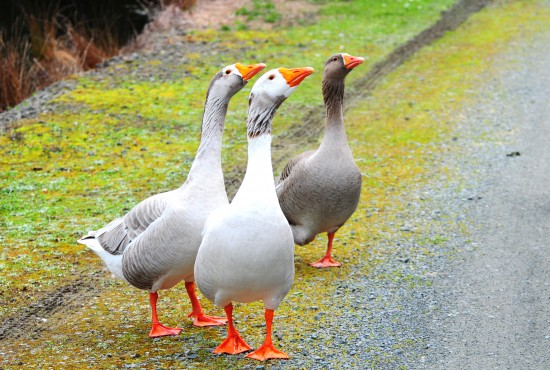
As things go Lungworm in dogs is a relatively new problem. Being first documented in France it did however quite quickly spread to other countries in Europe and has been a growing threat in this country for around twenty years now. As yet, in England most cases are reported in the south of the country, although recently some vets in the borders and North of England have noted a small handful of dogs presenting with the condition. Interestingly it should be noted, that with the increased rainfall we have seen over the past couple of years it is felt by some that it is only a matter of time before it becomes more prevalent in the North too.
In brief Lungworm is a parasite, named Angiostrongylus Vasorum. Once contracted it moves through the body to live in the heart and blood vessels of the infected animal.
In the main it is contracted by the ingestion of infected slugs and snails, or frogs – hence the proliferation of the disease in relation to climatic change – or to put it another and more succinct way.... yes... all those slimy slugs and snails and frogs just love slithering about in our uniquely beautiful, British (wet) weather!
And some dogs will eat all manner of grubs quite happily whilst nosing about in the undergrowth.
While others may eat infected matter by accident.
Without doubt if left untreated Lungworm is a serious matter. At best it is highly debilitating to the animal at worst it results in death.
Occasionally it can go undetected – many of the symptoms are similar to other more common ailments and they have a habit of varying somewhat from dog to dog. If you are in any doubt always consult a vet for a diagnosis. Your vet will carry out tests for you by examining the dogs’ faeces. It should be noted however that the lungworm is not present in every sample and so this may need to be carried out several times in order to fully confirm the condition.
Symptoms may include:
Preventative Measures:
Much as we would like to protect our dogs from illness and falling foul of such conditions as this, short of locking them away in a cupboard, there is no real failsafe way to stop them from contracting this disease. We can reduce the instance or likelihood though by being aware.
Lets way up the facts:
On the Other Hand:
The message then that we should take from this is an overall one. It is to be aware. Know the symptoms. And what you may do about them. And above all don’t panic or allow yourself to be panicked by what you read on the internet or anywhere else for that matter. Make the effort to inform yourself about your dog and in so doing make informed decisions on his/her behalf. It’s the greatest and safest gift you’ll ever give them.
 Can Dogs Make Owners Feel Guilty?
Can Dogs Make Own
Can Dogs Make Owners Feel Guilty?
Can Dogs Make Own
 Choosing The Right Mixed Breed Or Hybrid Dog For You
Choosing The Righ
Choosing The Right Mixed Breed Or Hybrid Dog For You
Choosing The Righ
 Some Frequently Asked Questions About The Khao Manee Cat Breed
Some Frequently A
Some Frequently Asked Questions About The Khao Manee Cat Breed
Some Frequently A
 10 Tips To Entice Discerning Cats To Eat
10 Tips To Entice
10 Tips To Entice Discerning Cats To Eat
10 Tips To Entice
 Why You Should Keep Geese
Why You Should Ke
Why You Should Keep Geese
Why You Should Ke
Copyright © 2005-2016 Pet Information All Rights Reserved
Contact us: www162date@outlook.com